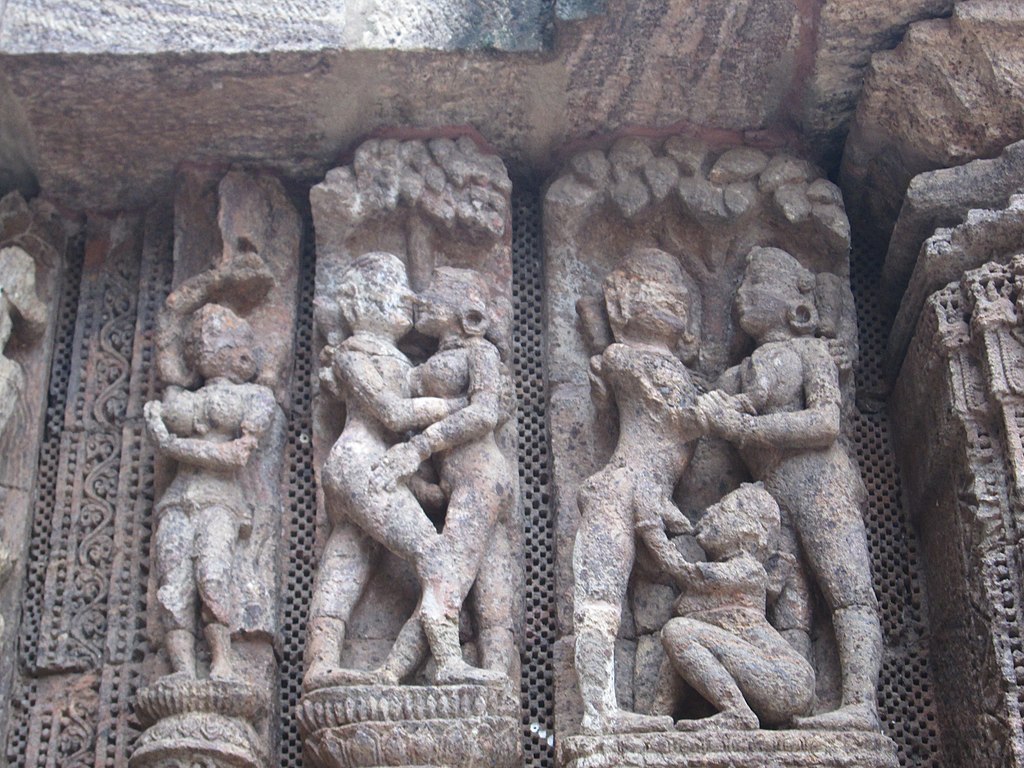
The Role of Sex Workers in Religion
 Present day sex workers are devalued, abused and oppressed. But prostitution is one of the oldest professions, even featured in The New Testament as Jesus is condemned for mixing with female ‘sinners’. ‘Sacred Prostitution’ has been happening for centuries and in a variety of cultural practices including in India, Ancient Greece and even Japan.
Present day sex workers are devalued, abused and oppressed. But prostitution is one of the oldest professions, even featured in The New Testament as Jesus is condemned for mixing with female ‘sinners’. ‘Sacred Prostitution’ has been happening for centuries and in a variety of cultural practices including in India, Ancient Greece and even Japan.
Sex workers in India were known as Devadasis, ‘servants of God’. They were high society women and were talented dancers and singers, performing in temples and in front of royalty. After being married to God, they were treated luxuriously and could initiate sacred rituals. This practice has now been dissolved and Devadasis are now treated like sex slaves and forced into a life of prostitution, sold to the highest bidder by their parents. This corrupt and disgusting system of exploitation means parents rely on their offspring as their main source of income in India. Because of their caste, these families live in poverty and see exploiting their daughters as something inevitable to pay their debts. A study in 2013 found that there were still as much as 45,000 Devadasis in India. It’s shocking to see how these women were once treated lavishly but are now dehumanized and forced to sell their body as a form of abusive currency.
In Ancient Greece, there were women who flocked to the Temple of Aphrodite to sleep with men in exchange for money, known as Pornai. Prostitution was an accepted occupation but also involved slaves who were forced to become sex workers in order to buy their freedom. Interestingly, Sex workers would advertise their services by wearing sandals that would leave imprints of the message ‘follow me’ to lure men to areas of the city. Men were also sex workers and offered their services to both men and women. There was a hierarchy within prostitution and at the high end of the scale, women were educated and skilled. It was more than just sexual services they were selling, men paid for their companionship too. Although prostitution was accepted, adultery was a punishable offence and women were expected to remain virtuous and pure until marriage. However, men were given the choice to go to brothels to meet their sexual needs rather than sleep with unmarried/married women. It seems revolutionary that sex workers are regarded as a human right for men in Ancient Greece but the idea of women having unmarried sex is almost blasphemous. It was truly a capitalistic practice as women buy female slaves, train them and therefore run their own brothels.
Although sacred prostitution is an ancient practice, in present day Thailand, prostitution is still a common occupation and a study in 2015 showed that religion is a significant part of sex workers’ lives. Some of the sex workers in the study are very religious and “visit temples frequently, pray daily, practice forms of Buddhist meditation regularly” etc. Most of the sex workers recognized a sense of struggle between their religious beliefs and their job. Values about sex work are rooted in depravity and sin but these Thai workers use religion as a force to spur them on when dealing with conflict. In contrast, they did experience guilt because of their profession and chose to deal with this by the act of ‘merit making’. This can include giving donations to temples and monks. These acts are “said to bring a sense of comfort and peace to them knowing that the accumulation of these religious acts may repay for the sins they have committed and assure them of a better future in this life or the next”. Many of these sex workers have had to turn to sex work because they didn’t have enough income working in minimum wage jobs to support themselves. Most of the case studies felt guilty and “the guilt was often associated with a sense of deception because they pleased men in exchange for monetary gain”. It is interesting that these sex workers believed they were sinning against religion for providing men with their services but did not equate men as also sinning because they sought these services. Attitudes to sex workers in Thailand shows how there is a unequivocal hypocrisy with gender and religion.
Although sex work is devalued in modern times, there is a recurring theme of sex work being associated with high society in Ancient religion. In theory, sacred prostitution in Ancient religion was “performed in the context of religious worship, perhaps as a form of fertility rite or divine marriage”. Sex plays a role in spirituality rather than just an act of pleasure. Sex workers in ancient religion were often ranked highly in status which is a stark contrast to the modern depiction of sex workers who are excluded from society.
Consequently, these examples reiterate that the role of sex workers in both ancient and contemporary religion are ever-changing due to societal changes and cultural values. Although we live in a ‘sexually liberated’ society supposedly, there are only 77 countries which have legalized prostitution and 11 that have limited rules around it. Although described as the ‘world’s oldest profession’, it’s clear that stigma still exists around sex work in present day but that it was used as a form of religious control for centuries.
